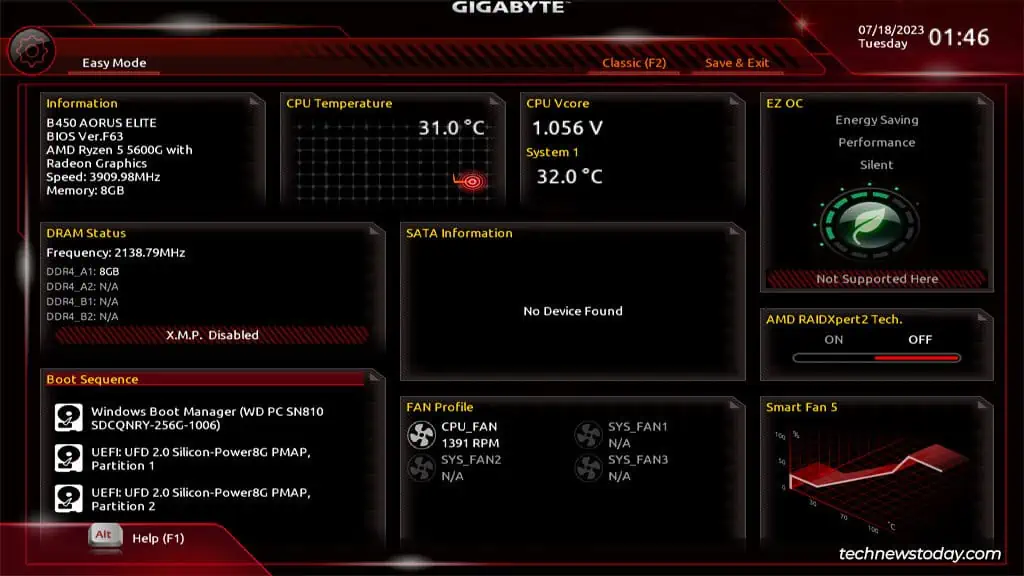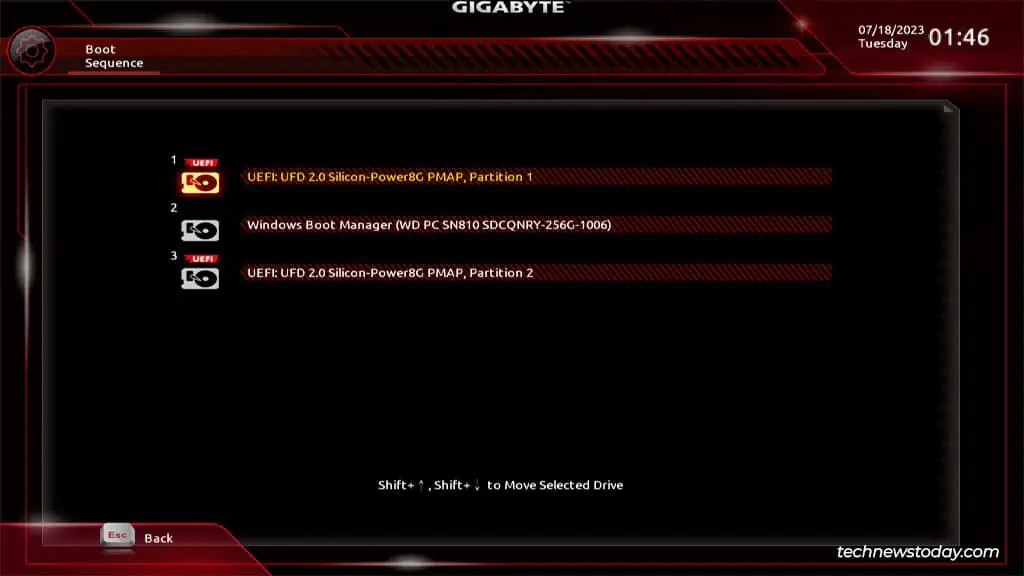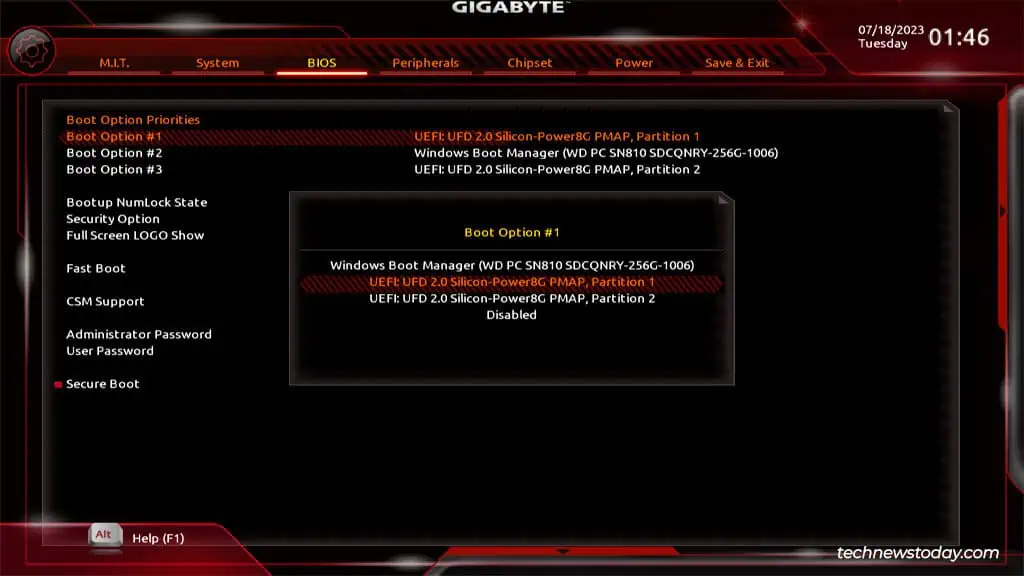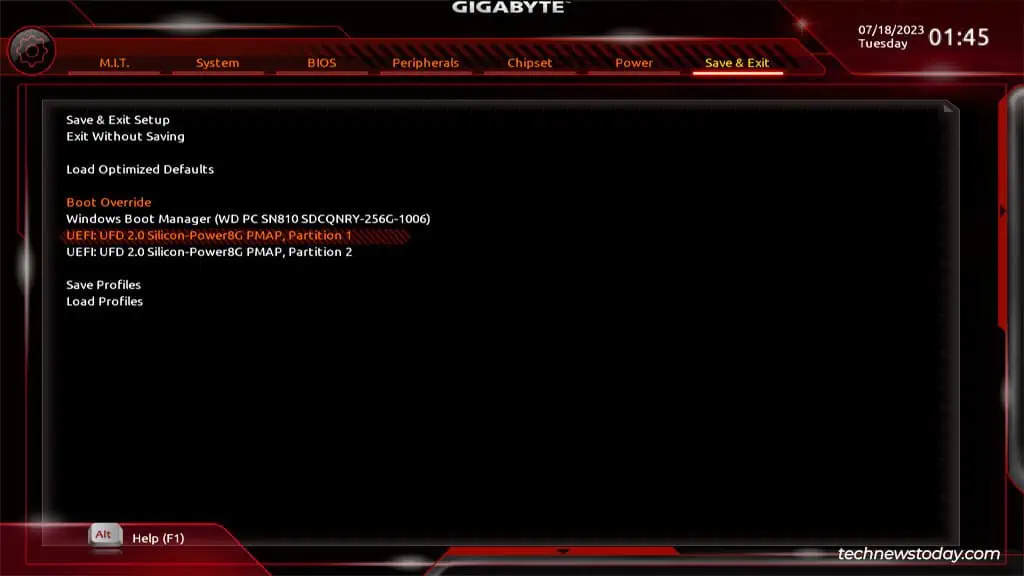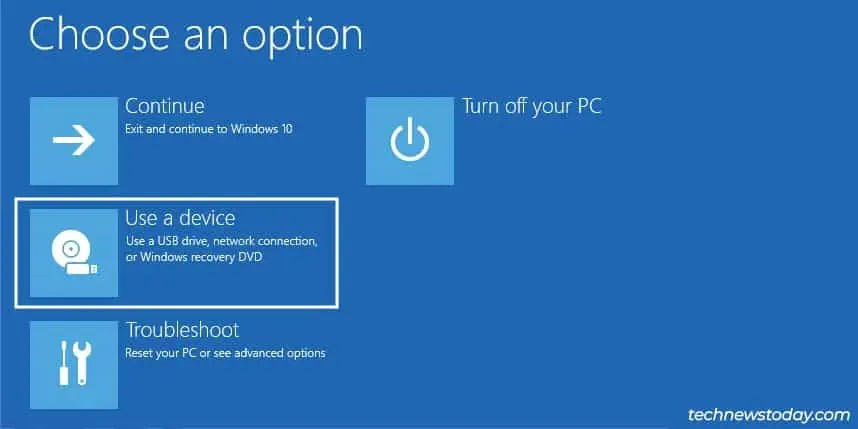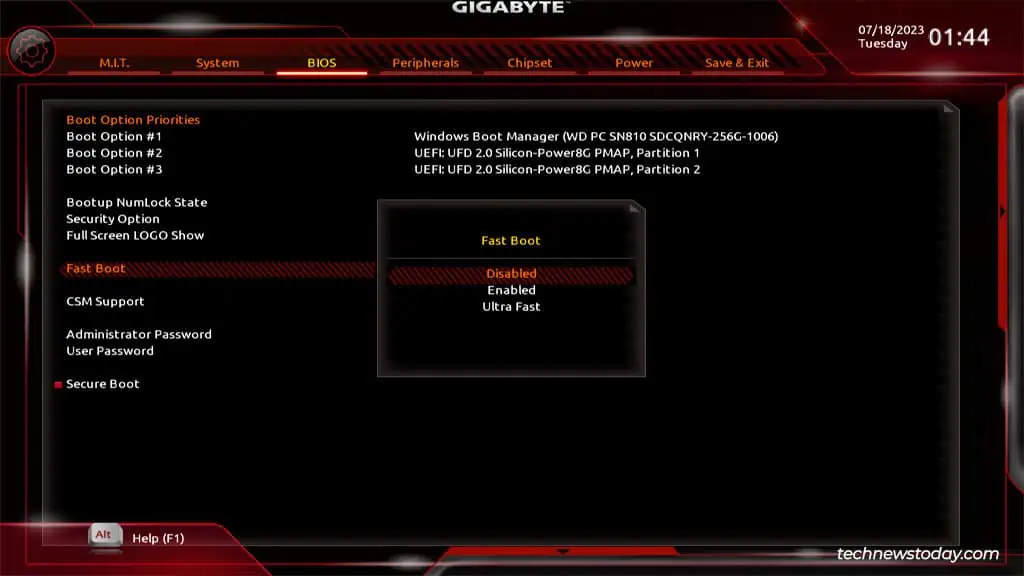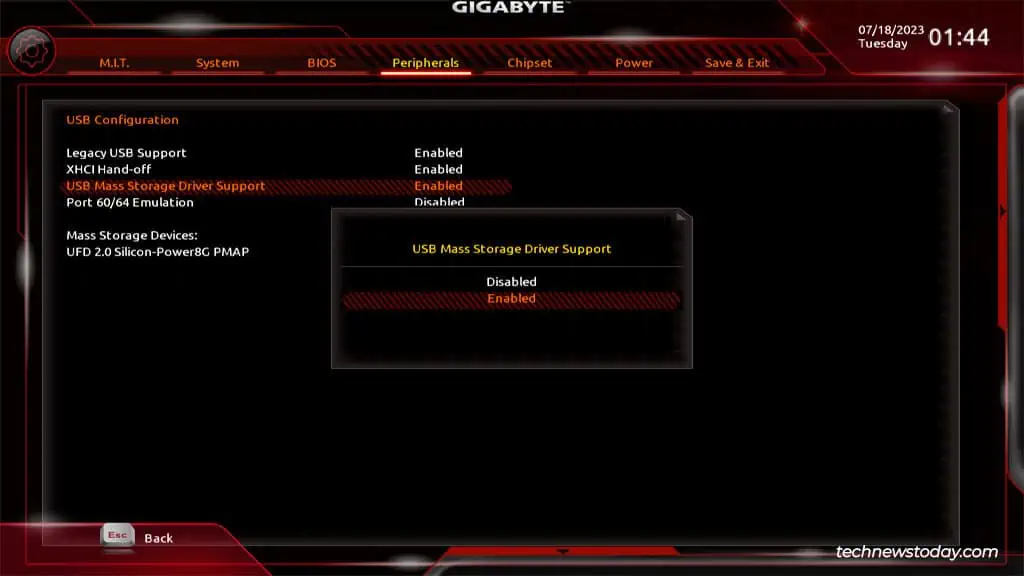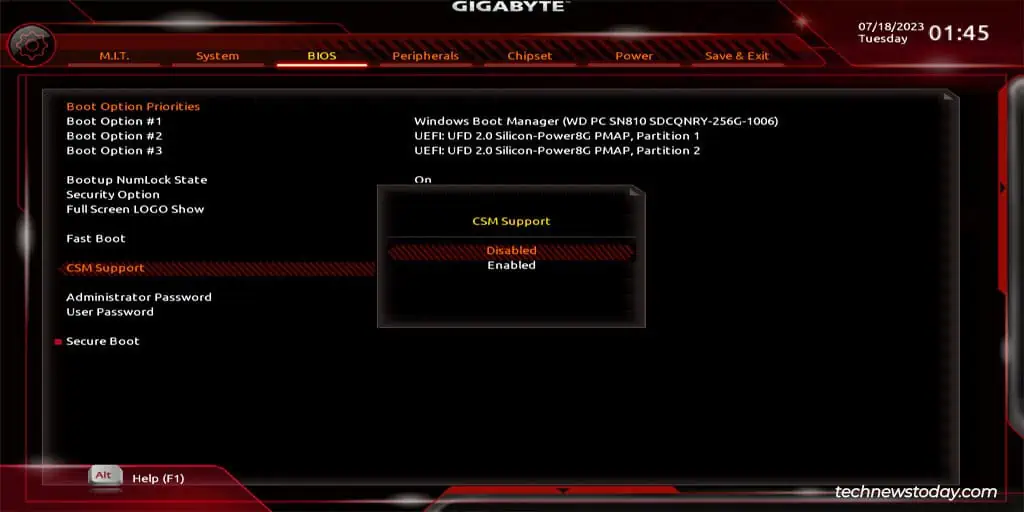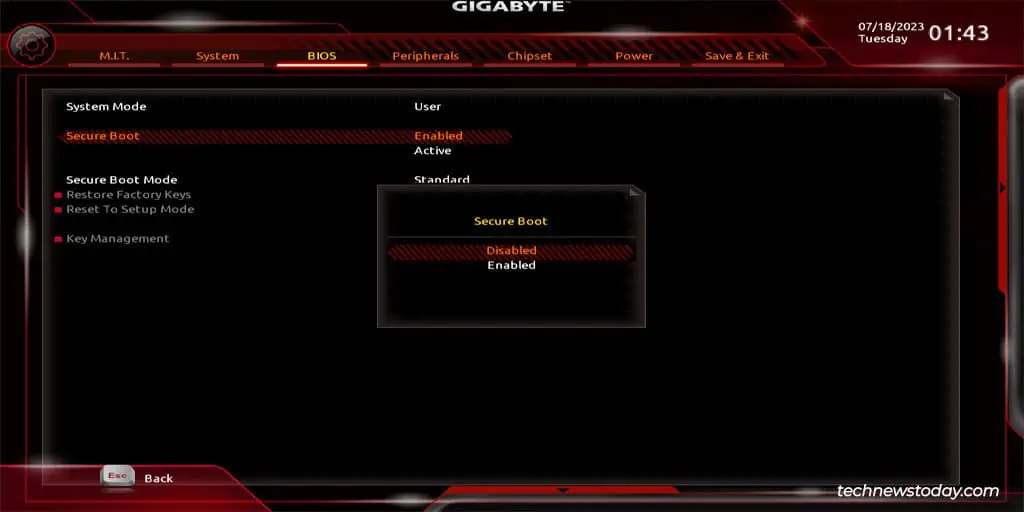Wheninstalling a new OS like Windowsor trying out a Linux distro, the usual approach is to create a bootable USB and boot from it. Gigabyte, like most other vendors, lets you do this from theBoot Devicemenu, or directly configure yourBoot Option Prioritiesfrom the BIOS interface.
While this is generally an easy process, some users may not be able to boot from the USB, or the USB might not get detected at all.
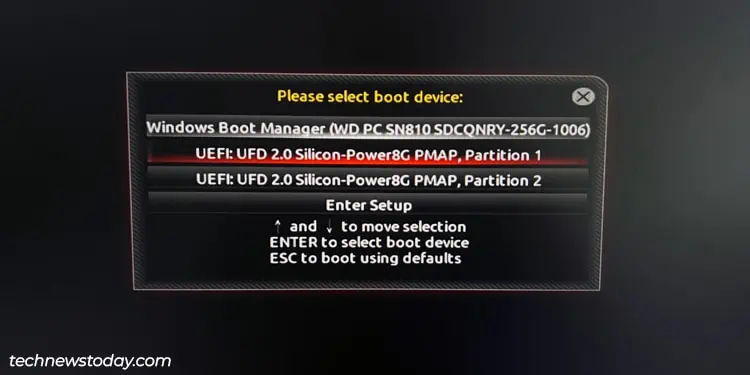
So, we’ll cover multiple ways to perform a USB boot on Gigabyte boards, as well as troubleshooting steps in case you face any problems.
Select USB from Boot Device Menu
TheBoot Devicemenu allows you to select the device to boot from for the current session. To access it on Gigabyte boards, perform the following steps:
Change Boot Option Priorities
TheBoot Option Prioritydetermines the order of devices from which the BIOS tries to boot. If you set the USB to the highest priority, your PC will try to boot from the USB whenever it’s connected. To do this,
Use Boot Override
Sometimes, your USB may not be listed in the Boot Device menu. In such situations, if you want to boot from the USB without changing the boot order, you may useBoot Override. It also lets you select the device to boot from for the current session.
Boot USB from WinRE
On modern systems running inUEFI or CSM mode, you’re able to also boot to the Windows Recovery Environment (WinRE) and select the device to boot from.
What If You Can’t Boot From the USB
When booting from a USB on Gigabyte boards, there are usually two problematic scenarios. First, the USB might not get detected at all. You can try the following troubleshooting process in this case:
If these steps didn’t help, or your problem was that the USB is detected but the system refuses to boot from it, try the following steps instead:
